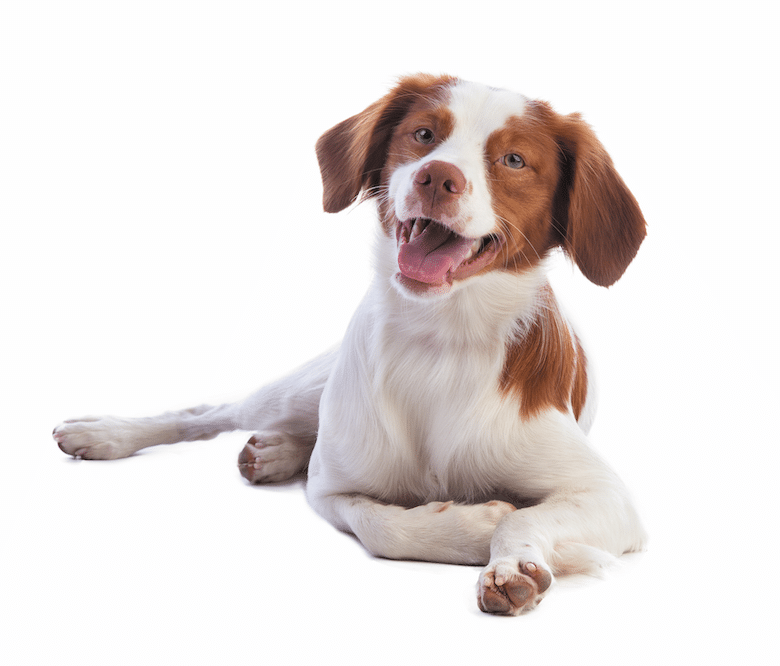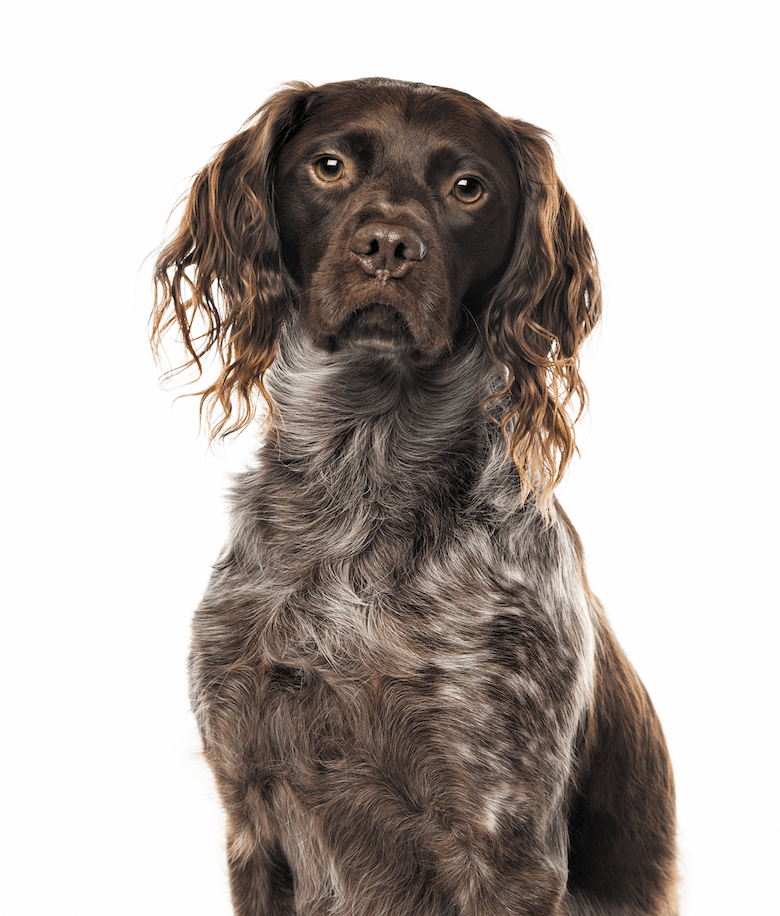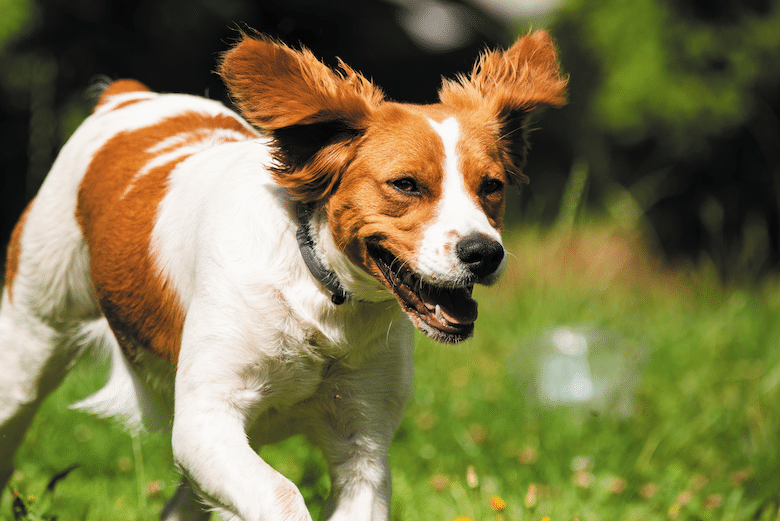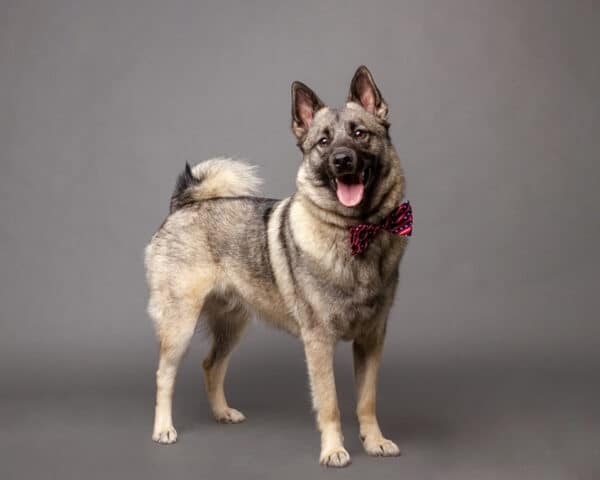The long-legged, stumpy-tailed Brittany is an athletic dynamo in a compact package. He has become a familiar sight in both city and country, always ready to tackle anything you throw at him. Here are seven fun facts about this energetic Sporting breed.
Vive la France
The breed gets its name from the Brittany region in northwestern France, surrounded by the English Channel to the north and the Bay of Biscay to the south, where the breed originated. Orange-and-white dogs of Brittany type, hunting and retrieving game, are depicted in paintings and tapestries of the 17th century by French, Flemish and Dutch masters. A Reverend Davies in 1850 describes hunting with small “bobtailed” dogs that pointed and were excellent retrievers. Around the same time, it is rumored that the modern Brittany came about through matings with English Setters. The Brittany’s original fans were medieval peasants and poachers, who lived a thrifty life. They lacked the means to support a large kennel so they needed a dog that was capable of being an all-purpose worker. That versatility that was bred into the Brittany remains a hallmark of the breed to this day.

Coming to America
The Brittany was first recognized as a breed in 1907 when an orange-and-white male named Boy was registered in France. The first breed standard was drawn up in the same year. The breed was introduced to the United States in 1931. In 1934 the American Kennel Club registered its first “Brittany Spaniel.” Here in America, hunters considered the Brittany more of a pointer than a spaniel in its working style, and in 1982, the AKC dropped “Spaniel” from the official breed name.
American and French dogs diverge
During the 20th century, American and French bloodlines split and went their separate ways. Black is an acceptable coat color in the French dogs, which also is genetically linked with black noses and dark eyes. This gives the Continental dogs a very different look from the dogs we are accustomed to seeing in this country. The AKC standard allows only orange-and-white or liver-and-white dogs, with amber eyes, and the nose ranging in color from fawn, tan and shades of brown to deep pink. A black nose is a disqualification, as is a black coat.

A Breed of Moderation
To function efficiently as a hunter, the Brittany must remain a medium-sized, agile dog, never clumsy. The breed standard specifies that the Brittany should range in height from 171/2 to 201/2 inches at the shoulder. Any Brittany measuring under or over these limits is disqualified from dog show competition. Ideal weight is between 30 and 40 pounds. Overweight or oversized dogs cannot function in the high-energy manner that is so typical of the breed, whether in competition or as an active family companion. The breed standard states, under “Substance,” that the Brittany must not be “… too light in bone, yet never heavy-boned and cumbersome.” Too much hair would also bog down the dog in the field, so overly long or profuse feathering on the legs and ears is severely penalized. A Brittany should be moderate in all respects.
High Energy
To quote the standard, the blueprint of the breed, the Brittany is prized as a “leggy dog having the appearance, as well as the agility, of a great ground coverer. Strong, vigorous, energetic and quick of movement. Ruggedness, without clumsiness, is a characteristic of the breed.” Does this sound like a couch potato to you? With his unlimited energy, the Brittany requires lots of rigorous, daily exercise and a job to keep him busy. If you have active children, or you bicycle or jog, the Brittany will make a superb companion. A tired Brittany will be happy to hang out and chill with you. Without a suitable outlet for his energy, the Brittany can exhibit neurotic and destructive tendencies, as any Brittany rescue volunteer will confirm.
A Dual Champion brag
Many Sporting breeds have, over time, been split into the dogs that do field work and their fancier counterparts that win in the show ring. Not many dogs of these breeds can perform in both arenas, and the look of the show and field specimens has changed over time. Not so with the Brittany. The “Dual Champion” designation in front of a dog’s name means that he has won both a field title (FC) and a show title (CH). The Brittany boasts more Dual Champions than any other breed: 608 and counting, according to the American Brittany Club’s website. This is a testament to the dedication of breeders and owners who are committed to keeping the Brittany a dog that can do it all.
And in other departments
With the emphasis on the Brittany’s great success in the field, it must not be forgotten that this super dog also excels in agility, obedience, flyball, rally, and as a therapy and service dog. The breed thrives in any climate and loves the water. If you can keep up with a Brittany’s energy level, you’ll quickly discover what a versatile breed this is.
Featured Image Credit: Przemysław Iciak | Getty Images





